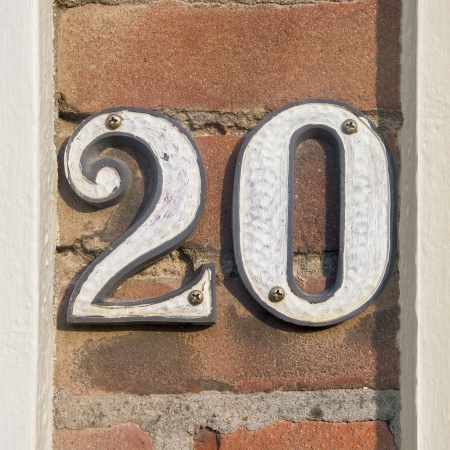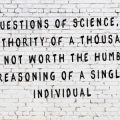Introduction: The Power of Names in British Culture
Names hold a profound place within British society, carrying layers of meaning that extend beyond simple identification. From centuries-old surnames to modern first names, the British Isles have cultivated a rich tapestry of naming traditions influenced by history, class, regional dialects, and even royal lineage. In the UK, a name can signal heritage, social standing, and sometimes even aspirations for the future. The importance placed on naming ceremonies—be it christenings or other rites—demonstrates how deeply names are woven into the national identity. This cultural context sets the perfect stage to explore an intriguing question: could your name also play a role in shaping your destiny? Numerology, a system that assigns meaning to numbers derived from names, suggests it might. As we delve into this age-old practice with a uniquely British lens, we will uncover how numerology interprets the hidden influence of names and what this could mean for individuals across the UK.
2. Understanding Numerology: A British Perspective
Numerology, at its core, is the study of how numbers influence our lives, with a particular focus on names and dates of birth. In Britain, numerology has found resonance throughout history, from the mystical traditions of the Celts to the intellectual circles of Victorian England. Let’s break down the basics and key terms so you can see how numerology might reveal hidden patterns within your own name—perhaps even shaping your destiny.
Key Numerology Terms Explained
| Term | Meaning | UK Example |
|---|---|---|
| Life Path Number | The sum of your birth date digits, reflecting your core personality and life journey. | Born on 12/05/1985: 1+2+0+5+1+9+8+5 = 31 → 3+1 = 4 (Life Path 4) |
| Destiny Number | Derived from the letters in your full name, revealing your natural talents and goals. | SARAH JONES: S=1, A=1, R=9, A=1, H=8, J=1, O=6, N=5, E=5, S=1 (Sum = 38 → 3+8 = 11) |
| Soul Urge Number | Calculated using vowels in your name; relates to inner desires and motivations. | SARAH: A=1, A=1; JONES: O=6, E=5 (Sum = 13 → 1+3 = 4) |
| Personality Number | Based on consonants; describes how others perceive you. | SARAH: S=1, R=9, H=8; JONES: J=1, N=5, S=1 (Sum = 25 → 2+5 = 7) |
A Brief History in the UK Context
The roots of numerology trace back thousands of years globally, but in Britain it gained notable attention during the Victorian era when spiritualism flourished in places like London and Edinburgh. Prominent British figures—including Sir Arthur Conan Doyle—were intrigued by numerological ideas. Even today, many Britons consult numerologists for guidance on everything from choosing baby names to making business decisions.
Everyday British Examples
- Royal Names: The choice of royal baby names often sparks public discussion about tradition and luck—a nod to numerological beliefs.
- Street Names: Some believe that living at a “lucky number” address in cities like Manchester or Glasgow can influence prosperity.
- Cultural Events: From housewarming parties to weddings, it’s not uncommon to hear conversations about “lucky numbers” or significant dates among friends and family across the UK.
Why Numerology Resonates in the UK
The British have always balanced tradition with curiosity about the mystical. Numerology offers a structured yet personal approach for those seeking meaning behind their names—whether you’re tracing Scottish ancestry or picking a modern moniker for your newborn in London. By understanding these basics and relating them to familiar examples, numerology becomes less abstract and more relevant to everyday British life.
![]()
3. How Numerology Analyses Your Name
Numerology systematically transforms names into numbers, believing each number carries unique vibrations that influence destiny. In the UK, numerologists typically use the Pythagorean method, which assigns a numerical value to each letter of the alphabet from 1 to 9. Let’s break down this process using familiar British names.
Assigning Numbers to Letters
Each letter is matched with a digit: A=1, B=2, C=3, and so on until I=9, then J restarts at 1, K=2, and continues cyclically. For example, “EMMA” would be calculated as: E(5), M(4), M(4), A(1).
Step-by-Step Calculation Example
Let’s use the name “Harry” (as in Harry Potter):
H = 8
A = 1
R = 9
R = 9
Y = 7
Add these together: 8 + 1 + 9 + 9 + 7 = 34.
The sum is further reduced by adding its digits: 3 + 4 = 7. The final result, 7, is called the “Expression Number”.
Applying the Method to Surnames
Surnames are calculated similarly. Take “Smith”:
S = 1
M = 4
I = 9
T = 2
H = 8
Total: 1 + 4 + 9 + 2 + 8 = 24 → 2 + 4 = 6.
Full Name Calculation
The full name’s numerological value is derived by combining first name and surname totals: Harry (7) + Smith (6) = 13 → 1 + 3 = 4. This number is thought to reveal core traits and life paths.
Cultural Relevance in the UK Context
This method accommodates double-barrelled surnames and traditional British naming patterns. For instance, “Charlotte-Anne” or “George Alexander Louis” can each be analysed by segmenting each component and summing their values accordingly. Such systematic calculation enables anyone across the UK to explore their name’s potential influence on their life journey.
4. Real-World Impact: British Case Studies
To truly understand how numerology can shape destinies in the UK context, lets delve into several British case studies—both real and hypothetical—that illustrate the tangible influence of names on life choices, personal branding, and career direction.
Case Study 1: Personal Branding for Entrepreneurs
Consider a London-based entrepreneur named Olivia Green. After consulting a numerologist, she discovers that her name number aligns with creativity and communication, but lacks the vibrancy associated with leadership. She decides to modify her brand by using her middle initial—Olivia J. Green—which changes her numerological vibration. This subtle shift enhances her brand appeal and coincides with a surge in client engagement.
| Name Variant | Numerology Number | Core Attribute | Observed Impact |
|---|---|---|---|
| Olivia Green | 5 | Creativity, Adaptability | Steady growth, limited leadership recognition |
| Olivia J. Green | 8 | Authority, Ambition | Increase in business opportunities, leadership roles |
Case Study 2: Career Direction in the UK Public Sector
A hypothetical case involves Thomas Baker from Manchester aiming for a role in civil service. Numerology analysis suggests that his name number resonates with service and harmony, aligning perfectly with public sector values. Encouraged by this insight, Thomas pursues a career in local government and feels an increased sense of fulfilment and recognition from colleagues.
Numerology Alignment Table for Career Choices
| Name Number | Typical UK Career Pathways | Supporting Attributes |
|---|---|---|
| 2 or 6 | Civil Service, NHS Roles, Education | Diplomacy, Responsibility, Harmony-seeking |
| 1 or 8 | Business Leadership, Politics, Entrepreneurship | Ambition, Independence, Authority |
| 3 or 5 | Media, Arts, Creative Industries | Communication Skills, Creativity, Flexibility |
Case Study 3: Life Choices in Modern Britain
Sophie Williams contemplates relocating from Bristol to Edinburgh for a new opportunity. Her numerology report reveals strong associations between her name and adaptability (number 5), suggesting she thrives on change. Empowered by this insight, Sophie makes the move confidently and quickly integrates into Scottish society.
Summary Insight:
The above examples highlight that Britons are increasingly open to exploring numerology—not as mere superstition but as a strategic tool for self-awareness and informed decision-making across personal and professional spheres.
5. Contemporary UK Attitudes Towards Numerology
In present-day Britain, numerology occupies a curious space between the mainstream and the mystical. While it is not as widely embraced as traditional religious practices or scientific methodologies, numerology has gained pockets of popularity, particularly among those seeking alternative approaches to self-understanding and destiny. Recent trends reveal an increase in interest, especially through digital platforms where personalised numerology readings are accessible at the click of a button. This growing online presence has made numerology more visible and approachable for the British public.
Culturally, attitudes towards numerology in the UK are nuanced. On one hand, there is a longstanding British scepticism towards anything perceived as pseudoscience; this critical mindset is rooted in the nation’s educational focus on evidence-based reasoning and empirical validation. As such, many Britons regard numerology with a healthy dose of doubt, often grouping it alongside horoscopes or tarot as light entertainment rather than serious guidance.
On the other hand, there is also a distinct openness to exploring new ideas, particularly within younger generations and urban populations. For some, numerology offers a playful yet thought-provoking tool for reflecting on personal identity—especially when considering how their names might influence their fate. The cultural narrative around ‘what’s in a name?’ resonates strongly in the UK, making numerological insights both intriguing and relatable even amidst prevailing scepticism.
Public perception is further shaped by media representation and celebrity endorsements. Occasional stories about influential figures consulting numerologists before major decisions spark curiosity, while lifestyle magazines and social influencers contribute to normalising such practices as part of broader wellness trends. Despite this increased visibility, most Britons approach numerology with caution—engaging with it primarily out of curiosity or for its novelty value rather than out of genuine conviction.
In summary, contemporary UK attitudes towards numerology are characterised by a dynamic tension between rational scepticism and open-minded experimentation. While not universally accepted, numerology’s role in shaping beliefs about names and destiny continues to evolve—reflecting the broader British tendency to balance tradition with modernity in matters of personal meaning and identity.
6. Conclusion: Balancing Belief and Identity in the UK
As we have explored throughout this article, the relationship between your name and your destiny, seen through the lens of numerology, is a fascinating interplay of personal meaning, cultural heritage, and individual choice. In the UK, where traditions blend with modern multicultural influences, names can reflect not just family history but also aspirations and values unique to British society.
Key Insights Recapped
We began by examining how numerology interprets the letters in your name to reveal personality traits, potential life paths, and even opportunities or challenges. We highlighted how British naming conventions—ranging from double-barrelled surnames to regional nicknames—offer a rich context for such analyses. Importantly, we noted that while numerology can provide intriguing insights, it remains one perspective among many in understanding identity.
The Balance Between Belief and Identity
In the UK’s diverse and often sceptical culture, it is crucial to approach numerology with both curiosity and critical thinking. For some, the practice offers reassurance or inspiration; for others, it serves as an interesting conversation starter rather than a guiding principle. Your name may be an entry point for self-discovery, but it does not determine your fate alone—personal effort, education, and social context play equally significant roles.
Guidance for Curious Readers
If you are interested in delving deeper into numerology within a UK context, start by researching reputable sources or consulting with experienced practitioners who respect local traditions. Reflect on what resonates with you personally without feeling pressured to accept every interpretation at face value. Consider discussing your findings with friends or family as part of your broader journey towards self-understanding.
Embracing Both Heritage and Choice
Ultimately, whether you view your name as a powerful influence or simply one aspect of your identity, remember that in the UK’s open-minded society, there is space for both tradition and individual expression. Embrace what empowers you, stay informed about cultural nuances, and let your name—and its numerological meaning—be just one chapter in your unique story.


